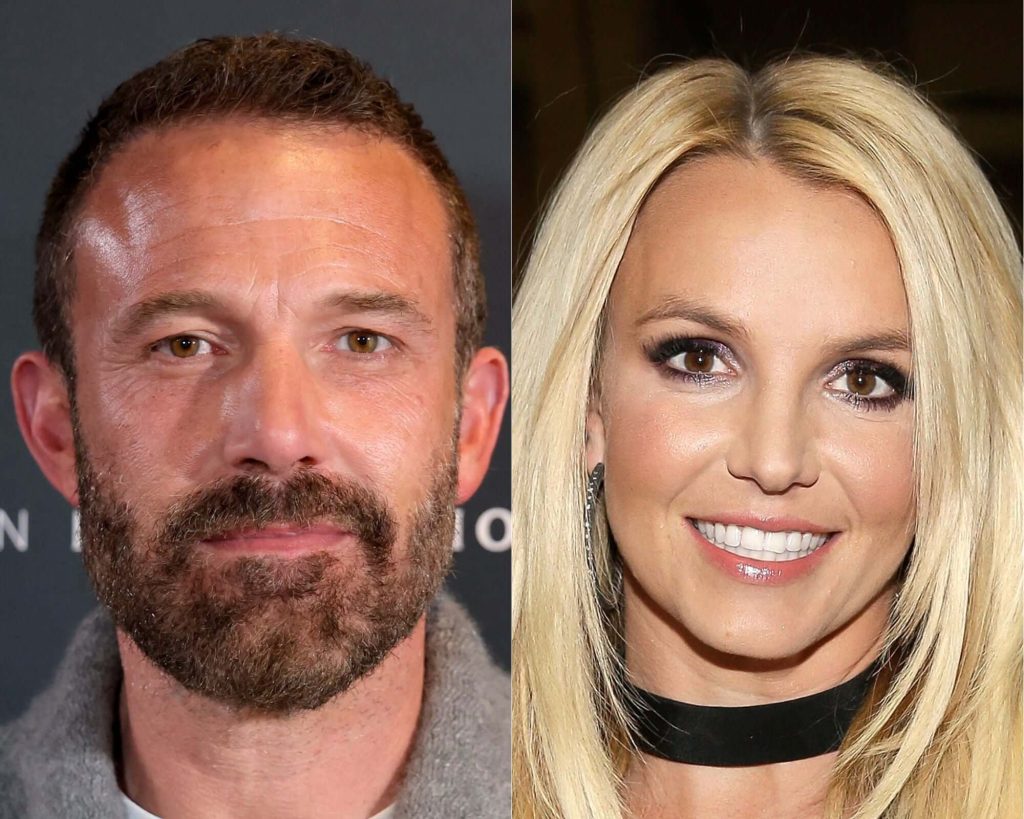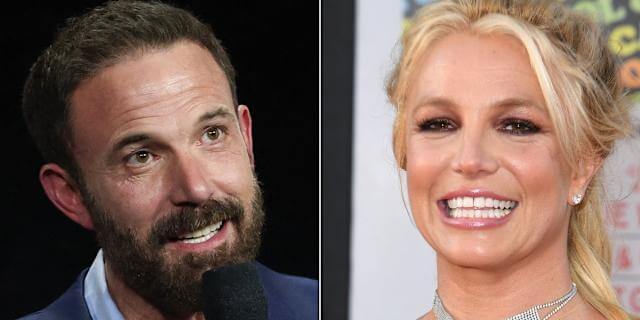World News
Ben Affleck’s Empathy for Britney Spears: A Candid Reflection on the Dark Side of Fame
The Price of Fame: Affleck and Spears Under the Paparazzi’s Gaze
In a world where celebrity status often comes with immense privilege and influence, the hidden costs of fame are frequently overlooked. During a heartfelt conversation on This Past Weekend with Theo Von, Ben Affleck opened up about a subject that has plagued public figures for decades: the aggressive and invasive nature of paparazzi culture. Drawing from his own experiences, Affleck empathized with Britney Spears, who has been one of the most publicized and scrutinized figures in the entertainment industry. His reflections revealed a deep understanding of the emotional toll such exposure takes—not just on the celebrities themselves but on their families as well.
Affleck didn’t hold back when describing how paparazzi provoke reactions from celebrities in order to capture sensational headlines. He painted a disturbing picture of this dynamic, comparing it to “poking a tiger” until it finally lashes out, only to have that moment of anger used against it. This metaphor highlighted how public perception is manipulated—how audiences are shown the dramatic reaction without context, while the steady stream of harassment and provocation remains hidden. Spears, who faced relentless media attention especially during her conservatorship battle, has become a symbol of how this kind of exposure can lead to mental health struggles and personal turmoil.
Affleck’s ability to articulate these issues underscores a growing awareness among celebrities and the public alike. His comparison to Spears serves as a reminder that the problem isn’t isolated; it’s systemic, persistent, and deeply damaging. By drawing parallels between their experiences, Affleck not only sheds light on the intensity of media scrutiny but also contributes to a broader conversation about celebrity rights and mental wellness in the face of fame.

Paparazzi Tactics: Provocation and Profit
At the heart of Affleck’s criticism lies a scathing assessment of how paparazzi operate. These photographers, often armed with high-powered lenses and zero regard for boundaries, capitalize on chaos. According to Affleck, their goal is not simply to document a public figure’s life but to intentionally incite and capture moments of vulnerability. These images, once published, fuel tabloid speculation, online gossip, and a media machine that thrives on scandal and suffering.
He described how the paparazzi deliberately push celebrities to their limits. The objective is clear: provoke an outburst or emotional reaction that will generate buzz and profits. Affleck’s analogy of the tiger being poked until it reacts draws attention to the unethical nature of such provocations. The public is then fed a narrative crafted entirely from these manipulated moments—stripped of context and empathy.
This tactic has especially dangerous implications for figures like Britney Spears. Her well-documented breakdowns were often portrayed as irrational or dramatic, without any consideration of the relentless pressure she endured. Affleck’s comments bring this issue into sharper focus, urging the public to rethink how they consume celebrity news. In a media landscape increasingly driven by clickbait and virality, his message is both timely and necessary: celebrities are not immune to pain, and exploiting their lowest moments for entertainment must stop.
The Impact on Family: Where Privacy Becomes Personal
While Affleck acknowledged that public figures accept a certain level of attention as part of their careers, he drew a firm line when it comes to his family. “My children didn’t sign up for this,” he implied, making a powerful case for why the privacy of celebrities’ loved ones deserves greater respect. The presence of paparazzi outside schools, playgrounds, and even homes has turned private spaces into arenas for unwanted attention, affecting the mental and emotional well-being of not just the stars but also their families.
Affleck expressed genuine concern for how this environment affects his children. The line between public persona and private life is not just blurred—it’s often obliterated. For a father, this intrusion is more than inconvenient; it’s a violation of safety and peace of mind. He emphasized that he can tolerate the attention directed at him during red carpet events or press tours, but when photographers cross boundaries and put his children in the spotlight, it becomes unacceptable.
His stance mirrors that of other celebrity parents who have spoken out against the media’s obsession with their kids. From Kristen Bell to Dax Shepard and Jennifer Garner, many have campaigned for laws that protect children from unauthorized photography. Affleck’s voice adds weight to this movement, reinforcing the idea that a celebrity’s fame should not come at the cost of their family’s mental health or personal freedom.

Spears as a Symbol: Public Breakdown and Misunderstood Pain
Britney Spears’s struggles with fame have been a cautionary tale for years. Her 2007 public breakdown became tabloid fodder, with every detail of her life dissected for public consumption. Yet, as Affleck pointed out, what the world saw was only the surface—an outcome of years of harassment, control, and pressure. His empathy for Spears stems from a shared understanding of that claustrophobic existence, where every move is scrutinized and every mistake magnified.
Affleck’s candid remarks offer a crucial shift in how such narratives should be interpreted. Instead of judging celebrities during their darkest moments, the public should ask what led them there. Spears’s situation was worsened by a legal conservatorship that took away her autonomy for over a decade. While many criticized her actions, few considered the psychological trauma of being constantly watched, evaluated, and exploited. Affleck’s reflection serves as an invitation to look deeper and show compassion.
This renewed perspective also opens the door for broader mental health advocacy. Spears’s story has already fueled the #FreeBritney movement, sparking widespread dialogue about personal rights, emotional well-being, and institutional abuse. By aligning himself with her struggles, Affleck amplifies those conversations and calls for change not just in how celebrities are treated, but how society handles fame, pressure, and vulnerability.
Toward a More Compassionate Culture: Affleck’s Call to Action
Ben Affleck’s discussion with Theo Von wasn’t just a personal revelation—it was a call to action. He urged society to rethink its fascination with celebrity misfortune and to reject the exploitative practices that make it profitable. The conversation served as a reminder that empathy must extend beyond fan admiration. It must include respect for boundaries, understanding of human complexity, and a commitment to ethical storytelling.
His words contribute to a slowly growing movement within Hollywood and media spaces to advocate for change. Whether it’s laws to protect children, limitations on paparazzi access, or shifts in media consumption, these changes are essential. The entertainment industry may never be free of attention, but it can strive for a version that doesn’t dehumanize its stars.
Ultimately, Affleck’s comments reflect not just empathy for Britney Spears, but a broader awareness of how fame, privacy, and mental health intersect in the digital age. His vulnerability and honesty remind us that even the most glamorous lives come with unseen burdens. By listening, learning, and acting with compassion, the public has the power to change the narrative—for Affleck, for Spears, and for countless others living under the spotlight.
From dragontrendtees


